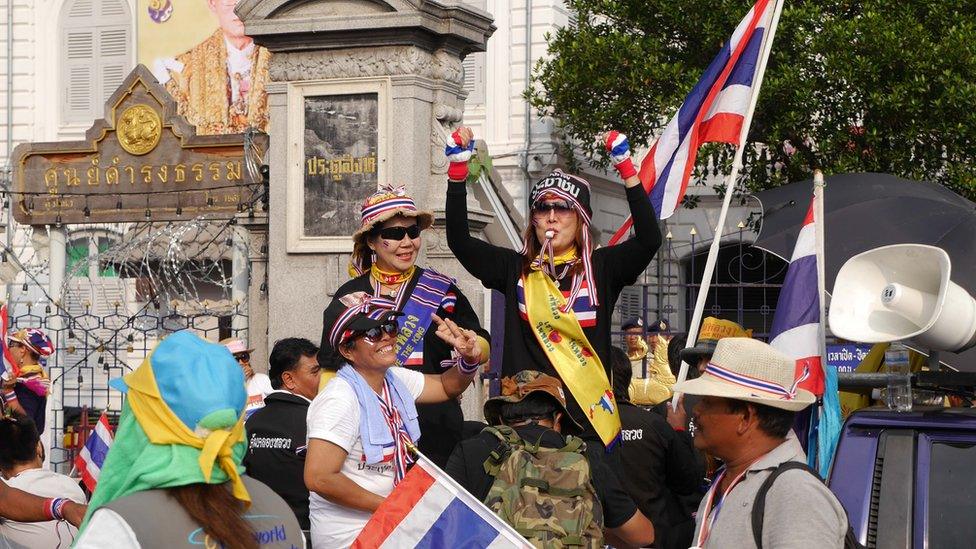Thai police remove barricades to police and PM offices
- Published
Jonathan Head says the confrontation "has suddenly turned into something a bit like a family picnic"
Thai protesters entered the government's headquarters after police removed barricades from outside both Government House and the police office.
The mood in the capital Bangkok appeared considerably calmer after the move, which followed clashes over the weekend and on Monday.
But as tensions fell, protest leader Suthep Thaugsuban vowed to fight on and remove the government.
The Thai prime minister has rejected protesters' demands that she step down.
Yingluck Shinawatra said she was open to negotiations but that calls for the government to be replaced by an appointed council were illegal and unconstitutional.
The protests, which began on 24 November, had been largely peaceful until Saturday, when they became violent.
Over the weekend and on Monday demonstrators tried to break apart police barricades and storm the prime minister's office, Government House, with police using tear gas and water cannon to repel them.
'No confrontation'
Protest leader and former opposition politician Suthep Thaugsuban said on Monday that the protesters would "take over the Metropolitan Police Bureau and make it the people's".
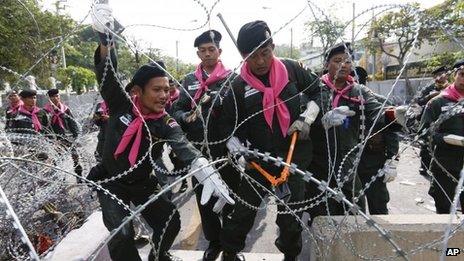
On Tuesday, police cut away wire and opened barricades to avoid further confrontation with anti-government protesters
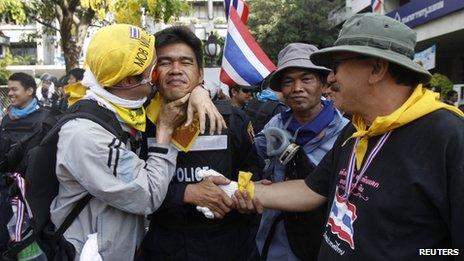
The move transformed the mood, correspondents say, after days of tension
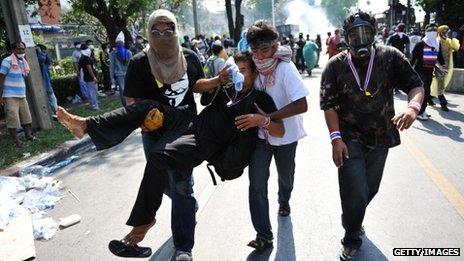
On Monday there were violent scenes as protesters tried to storm government offices
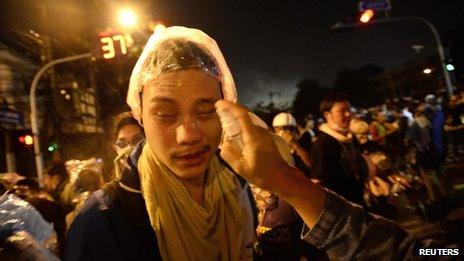
Anti-government demonstrators were treated for tear gas exposure, as clashes went into the night
On Tuesday morning - in a surprise and possibly shrewd move - the police took down barriers and razor wire outside their building and it was announced that the protesters were welcome inside, the BBC's Jonah Fisher reports from Bangkok.
Protesters were allowed through the barricades outside Government House.
Demonstrators gathered on the lawn of the headquarters, blowing whistles and waving flags. AFP news agency reported a "carnival" atmosphere at the site.
Protesters shook hands with police officers, hugged them, and offered them roses.
Deputy Prime Minister Pongthep Thepkanchana said the government was still functioning, but had asked the police to back off.
Former PM Abhisit Vejjajiva says Yingluck Shinawatra "got her priorities wrong"
"We see the protesters just want to seize these places as a symbolic action, so we want to compromise," he told Reuters.
The police move is seen as an attempt to prevent further clashes.
The feeling on the ground is that after ten days of demonstrations there will now be a pause - if not a permanent halt, Jonah Fisher reports.
The Thai King's 86th birthday is on Thursday - and there is no question of trouble then, our correspondent adds.
"There's a mutual understanding that everything must be calm and orderly on this auspicious day," National Security Council chief Paradorn Pattanatabut told AFP news agency.
"Talks could be held after the king's birthday," he added.
'Partial victory'
Protesters have described the latest developments as a win for the people.
Mr Suthep told his supporters: "You cannot go back home yet. We have to continue our struggle,"
"Today we won a partial victory but we will fight on until the Thaksin regime has been driven out," he added, referring to Thaksin Shinawatra, Ms Yingluck's brother and an exiled former leader.
The demonstrators want to replace the government with an unelected "People's Council", alleging Ms Yingluck's government is controlled by Mr Thaksin.
One protester told Reuters: "We don't want to dissolve parliament, we don't want new elections because we will lose anyway. We want [the Shinawatra family] to leave the country."
Thailand's courts have issued two arrest warrants for Mr Suthep, although police have not attempted to arrest him so far.
Four people have died in clashes since Saturday. It has been Thailand's worst political turmoil since the 2010 rallies that ended in violence.
'Repeat of history'
"Anything I can do to make people happy, I am willing to do... but as prime minister, what I can do must be under the constitution," Ms Yingluck said in a televised address on Monday.
Ms Yingluck has said that she would not authorise the use of force against protesters.
"I believe that no-one wants to see a repeat of history, where we saw the people suffer and lose their lives,'' she said on Monday.
More than 90 people, mostly civilian protesters, died when thousands of red-shirt Thaksin supporters held a two-month sit-in in the centre of Bangkok in 2010.
Ms Yingluck's brother, Mr Thaksin was ousted in a military coup in 2006 that left the country bitterly divided.
Her government, which has broad support outside the capital, took office after winning elections in 2011.
But the protesters allege that Mr Thaksin runs the government from overseas exile and accuse the current administration of using populist policies that are hurting Thailand's economy to remain in power.
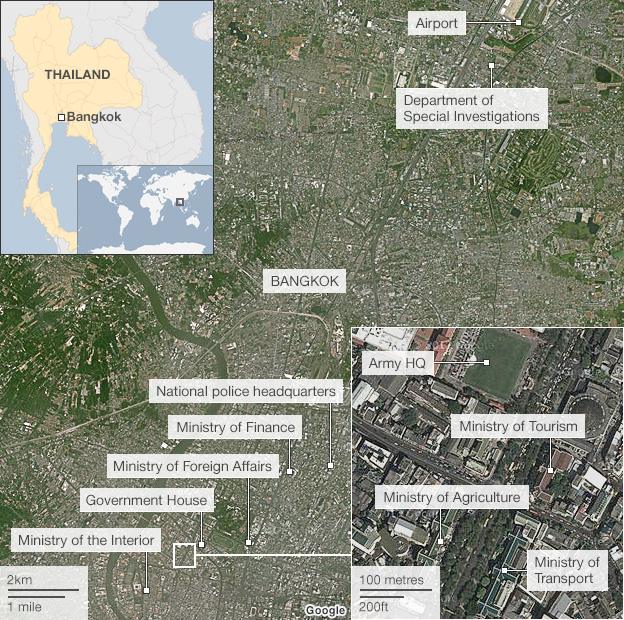
- Published3 December 2013
- Published3 December 2013
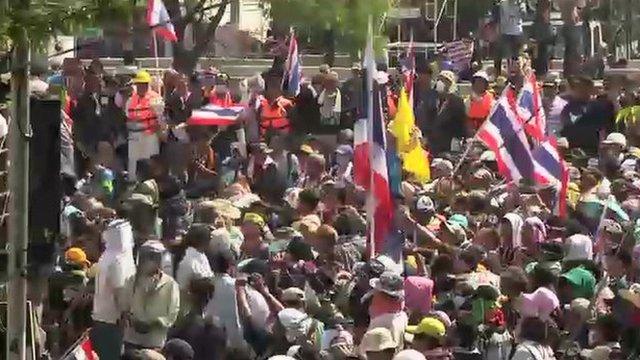
- Published22 May 2014
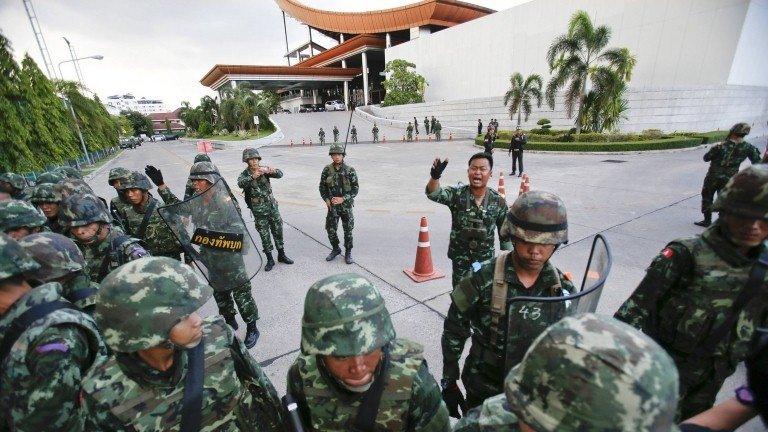
- Published2 December 2013
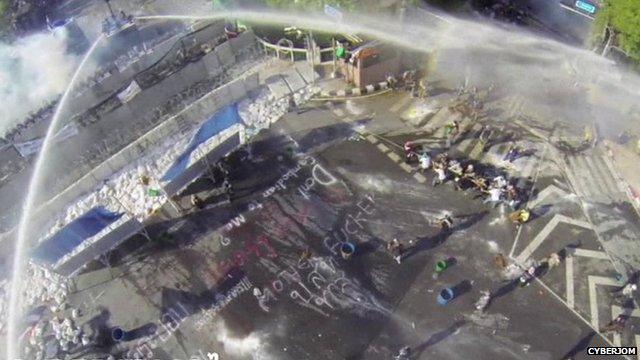
- Published28 November 2013
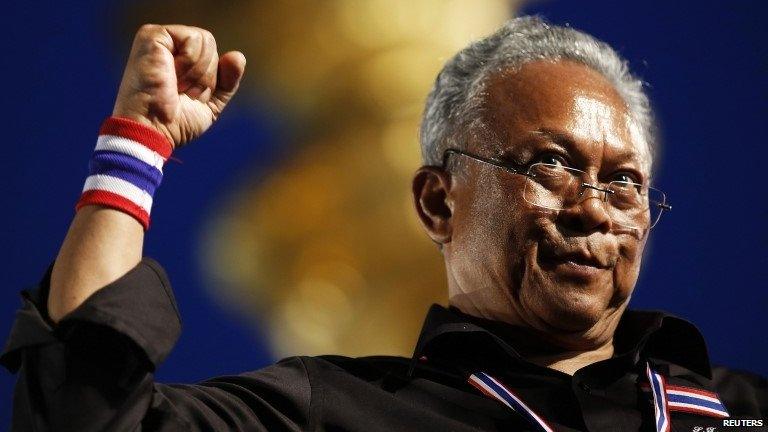
- Published26 November 2013
